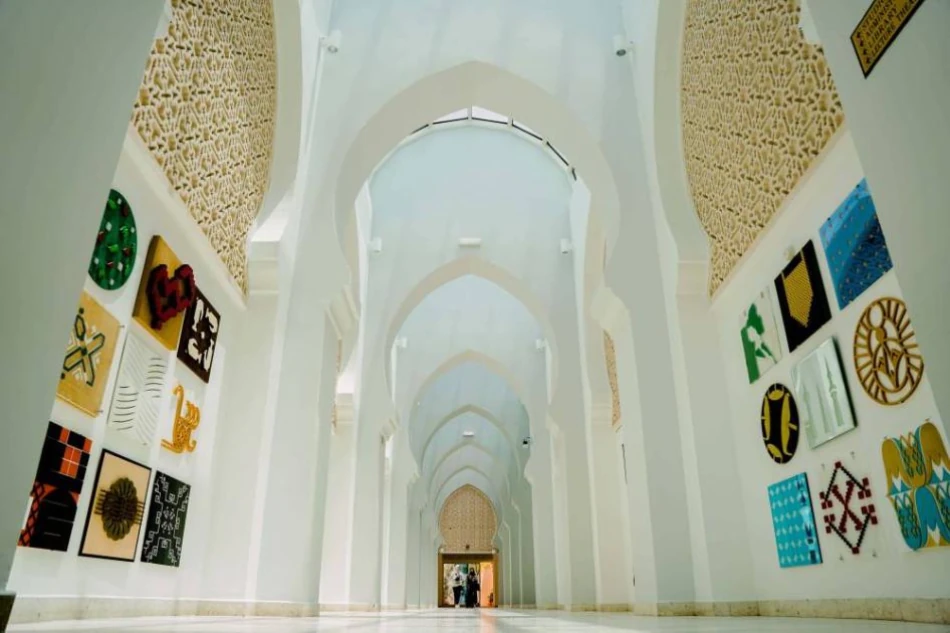
Sharjah University Launches Captivating Bachelor's in Art History, Enriching Cultural Exploration
UAE Pioneers Cultural Education with First-Ever Museum Studies Program
The University of Sharjah has launched the UAE's inaugural Bachelor of Fine Arts in Art History and Museum Studies program, marking a strategic shift toward professionalizing the country's rapidly expanding cultural sector. Set to begin in Fall 2025, this interdisciplinary program represents a calculated response to the UAE's ambitious goal of becoming a global cultural hub, backed by over 170 museums nationwide and a national creative industries strategy targeting international talent attraction.
Filling a Critical Skills Gap in the Gulf's Cultural Boom
The timing of this academic initiative reflects the UAE's cultural infrastructure explosion. With hundreds of art galleries complementing its extensive museum network, the Emirates faces a growing demand for qualified cultural professionals who can bridge traditional heritage preservation with contemporary curatorial practices.
The 123-credit program, offered through the College of Fine Arts and Design, combines theoretical foundations with hands-on professional training, including mandatory eighth-semester internships. This practical approach addresses a common criticism of arts education in the region—the disconnect between academic study and industry requirements.
Strategic Partnerships Drive Program Development
The program's development involved direct collaboration with the Sharjah Museums Authority and the Sharjah Art Foundation, ensuring curriculum relevance to actual market needs. This partnership model mirrors successful cultural education initiatives in Singapore and the Netherlands, where industry-academia collaboration has produced highly employable graduates.
Dr. Essam Eddin Ajami, University Director, emphasized the program's alignment with the UAE's 2021 National Strategy for Cultural and Creative Industries, which aims to position the country as a global creative center. This strategic coordination between educational offerings and national economic planning demonstrates the UAE's systematic approach to cultural sector development.
Regional Context: The Gulf's Cultural Ambitions
The UAE's move follows similar cultural investments across the Gulf. Saudi Arabia's Vision 2030 includes massive cultural projects like NEOM and AlUla development, while Qatar's museum expansion around the 2022 World Cup created substantial demand for cultural professionals. However, the UAE's focus on academic program development represents a more sustainable, long-term approach to building cultural capacity.
Unlike Dubai's strategy of importing international museum expertise—seen in partnerships with the Louvre and Guggenheim—this program emphasizes developing local talent with deep understanding of regional cultural contexts while maintaining international professional standards.
Market Implications for the Creative Economy
The program targets specific career paths including art dealers, archivists, cultural journalists, exhibition curators, and museum administrators. These roles command increasingly competitive salaries in the Gulf, where cultural institutions compete globally for talent.
For investors and cultural entrepreneurs, the program signals government commitment to supporting the creative industries infrastructure. The emphasis on both Islamic civilization studies and contemporary museum practices suggests graduates will be particularly valuable for institutions seeking to present regional heritage to international audiences.
Measuring Success in a Competitive Landscape
The program's success will likely be measured against graduate employment rates in target sectors and the quality of cultural programming at partner institutions. With the UAE hosting major international art fairs like Art Dubai and the Venice Biennale UAE Pavilion, there are clear benchmarks for assessing the program's impact on cultural sector professionalization.
Dr. Nadia Al-Hosni, Dean of the College of Fine Arts and Design, positioned the program as creating "ambassadors for heritage and arts," suggesting an expectation that graduates will represent UAE cultural interests internationally—a crucial component of the country's soft power strategy.
Most Viewed News

 Omar Rahman
Omar Rahman






